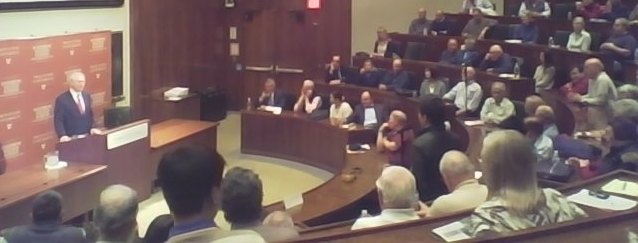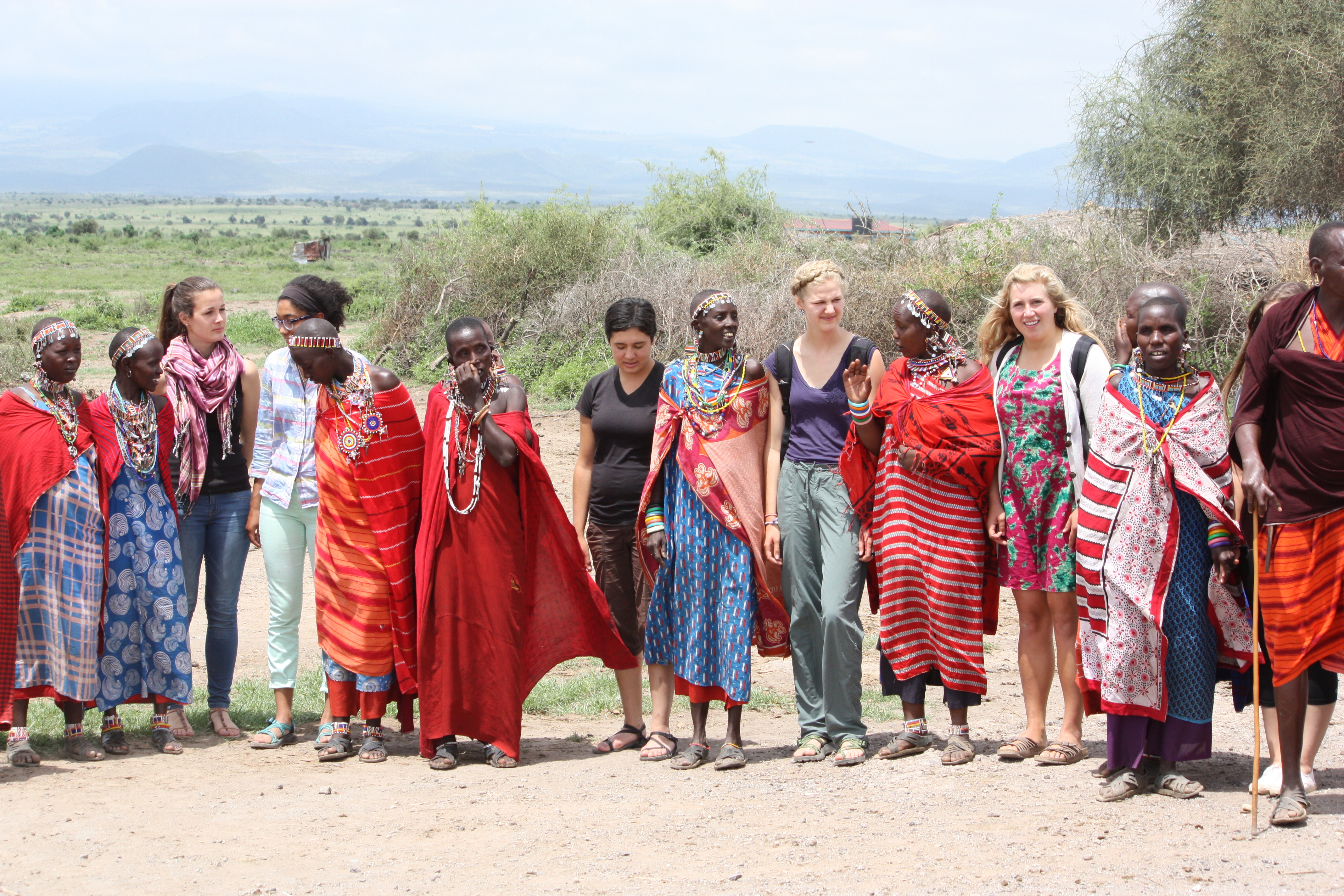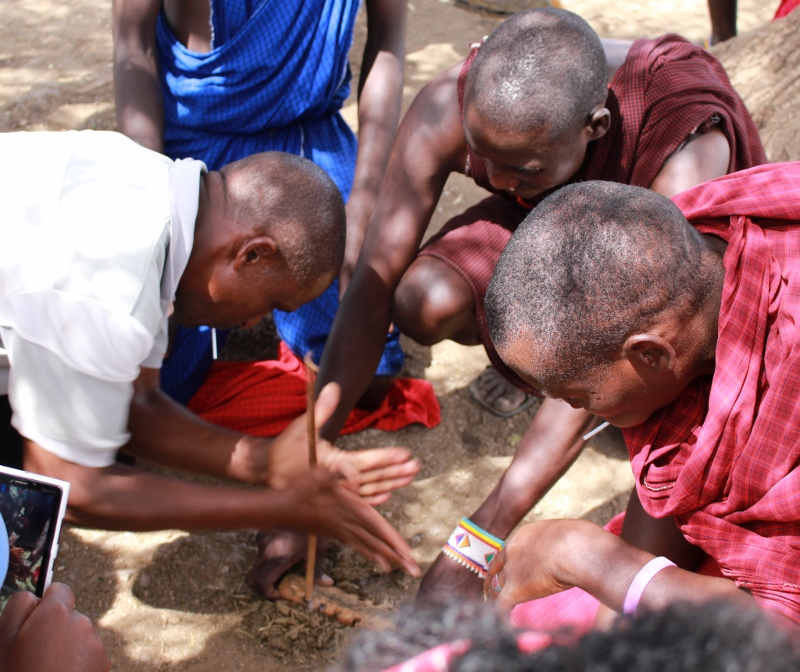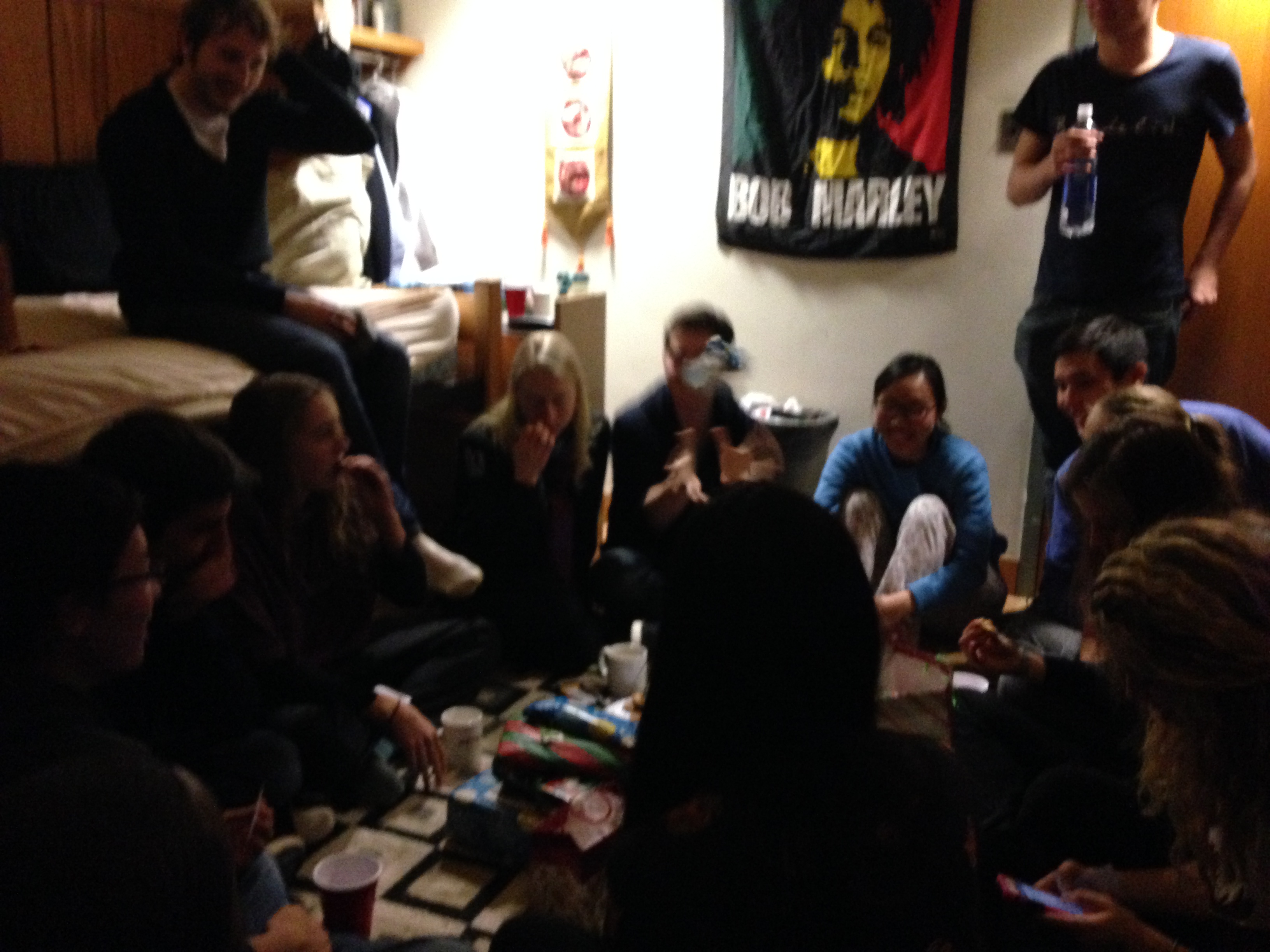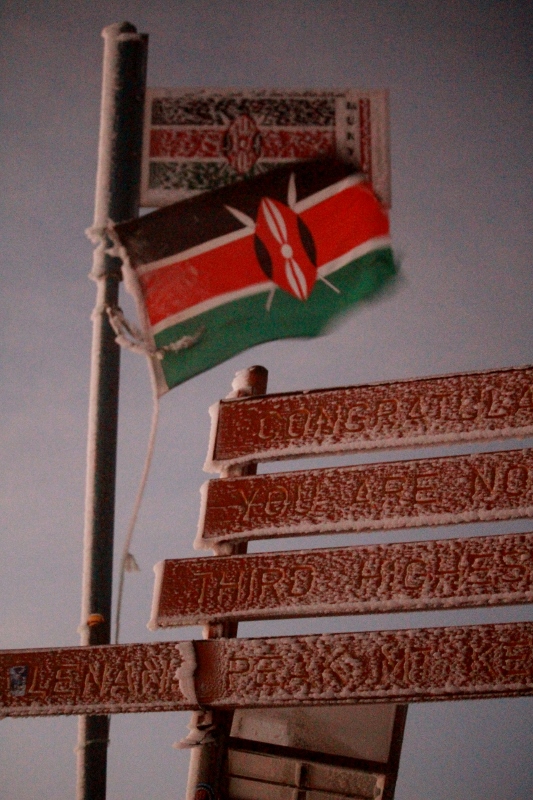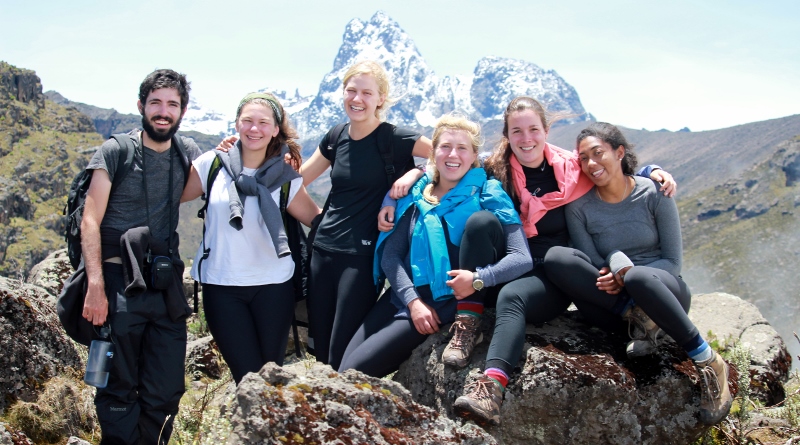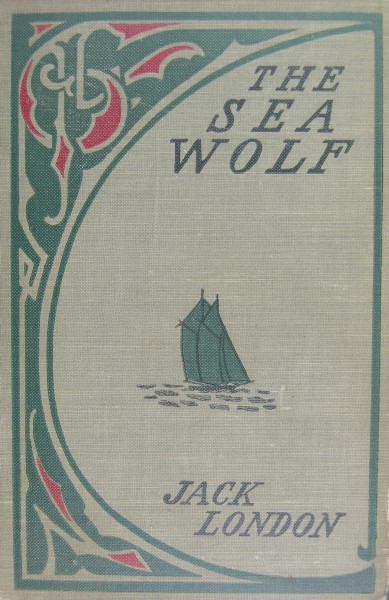I take my Sundays slow. It is usually the day I awake at my latest (8:30 a.m.) forgoing run and gym and for at least the first two hours the miles and weights of history, Arabic, art and urban studies. This time is for those small pleasures of campus life that one would miss, I think, if one did not deliberately pull back the pace.
So one morning after showering I returned to my room and dressed, tying my feet in my lace-ups, but noticing spring dancing outside my window, I took off the heavy shoes for canvas espadrilles. A few books and paper in my backpack, and I descended 1938 Hall slowly, as I was to pass this morning in good company.
Lovia met me in Wilson’s courtyard at 9 a.m., and from there we proceeded up campus trading bits of small talk. While I have often spoken with Lovia in passing and at events, this morning was to be our first long outing since middle fall.
Not too many others were out, unless one counts the squirrels that always are digging, skipping, climbing. Once past FitzRandolph gate, we crossed Nassau Street and continued into town among more people, but it seemed most were still dreaming. Our first stop was Terra Momo, a bakery two blocks into town from the University beside a cigar shop of attractive smells and across from the town’s public library. The bakery is small—there is only one table by the storefront window—but the selection is vast (nearly indomitable for the hungry and choice averse). Lovia and I deliberated for quite some time, being asked by the clerk three times if we were ready and declining until the last. I asked her if she would share a chocolate croissant with me, and soon learned she had gag reflex to it. Funny but tragic I thought…
We took our breakfast to Infinitea, one of many coffee and tea places in town, but by far the most eclectic with tables, tapestries and of course teas that the owners have gathered on their travels abroad. Infinitea was where Lovia and I had our last conversation months before, and taking up nearly the same space we started a new conversation between bites and sips. We settled on a broad but pertinent topic concerning the opportunity and concomitant challenges of life at the University. The individual here encounters many expectations, we agreed, some that we should conform to and others we should agitate against, and both being choices on which we ultimately stake our identity for or against.
The direction of the conversation reminded Lovia of an essay by Zadie Smith called “Speaking in Tongues,” which she was carrying in her folio. Smith’s uses voice as the leitmotif in the essay, which serves as a larger metaphor of identity. How we speak relays much about who we are—male, female, of the metropole or country, and from which of the myriad groups in either place. Do we subdue certain inflections, replace certain slang for words of more common currency, or do we lead a bilingual existence comfortably or uncomfortably? Smith’s foremost concern is that we realize there is no standard voice, or rather a standard that could also appreciate variety and difference, the sources of imagination for Smith. Sitting with Lovia, I felt my own voice free to express my interest in aesthetics and disinterest in late parties, my pursuit of something good and those things that quickly detour me from that pursuit, all of which was said in my low voice of Southern bent. I hope I offered Lovia the same comfort to speak as she felt. She told me of the tensions she feels—should she read and write with only the company of pen and author, or should she yield to more extroverted pressures? Undoubtedly there are times on campus, and life generally speaking, in which our voice should take up a synced flow, but just the same there are times when we should yell and affirm our own specific patois, if not of vocal tone then surely that of our character, in the face of real or imagined univocality.
Breakfast long gone and cups similarly empty, Lovia asked if I would accompany her to the bookstore. We arrived to two doors still closed, and even though it would be a half hour before they opened, we decided to wait on a bench nearby. Our conversation continued interspersed with weather talk as the sudden onset of spring demanded some acknowledgment. In time the store owner rounded the corner and invited us to enter. Lovia became the first customer of the day and I a close second as we entered a space of almost infinite voices. There was one in particular she wanted me to read, and I had the same desire for her. “Here,” she said when we were among the fiction, “read this Hemingway short story.” I took the book and gave her a collection of Robert Walser shorts stories in return. I read Hemingway’s “Hills Like White Elephants.” A man and a woman sit in a bar in the tropics and there is not much more plot than that. Most of the story is in what is said between the two, their shifts pauses and subtlety. It was quite different from Walser’s shorts in which there is rarely voice in dialogue. Lovia agreed, then as if on a whim she asked to read Hemingway again, but aloud. For four pages of text my voice tried to take up that of two others culminating in their contentious trade:
"I said we could have everything."
"We can have everything."
"No, we can't."
"We can have the whole world."
"No, we can't."
"We can go everywhere."
"No, we can't. It isn't ours anymore."
"It's ours."
The man and woman swing over a tense ambivalence between them, perhaps an unwanted pregnancy. I believe much the same vacillating is expressed in the sentiments behind our voices here at the University from time to time. Princeton can prompt one to feel you can say and be everything, and sometimes feel mute and be nothing. Neither feeling gets to reality. Both presuppose our voice as too separate and solipsistic. “It’s ours,” says the woman, expressing the shared circumstance of her problem. Similarly voice is a shared property of our community. I realized this as Lovia and I crossed back over to Nassau Street and parted at Firestone Plaza. I was quite happy to have passed the morning with her voice. It imparted thoughts into my own and perhaps it will do the same to whomever reads this. One’s voice will find challenge, skepticism and disagreement at Princeton, and often for the betterment of its tone. But no need of fear, because there is much more time for it to hum, laugh and sing with others, just as mine did that Sunday morning. It feels good to speak.
